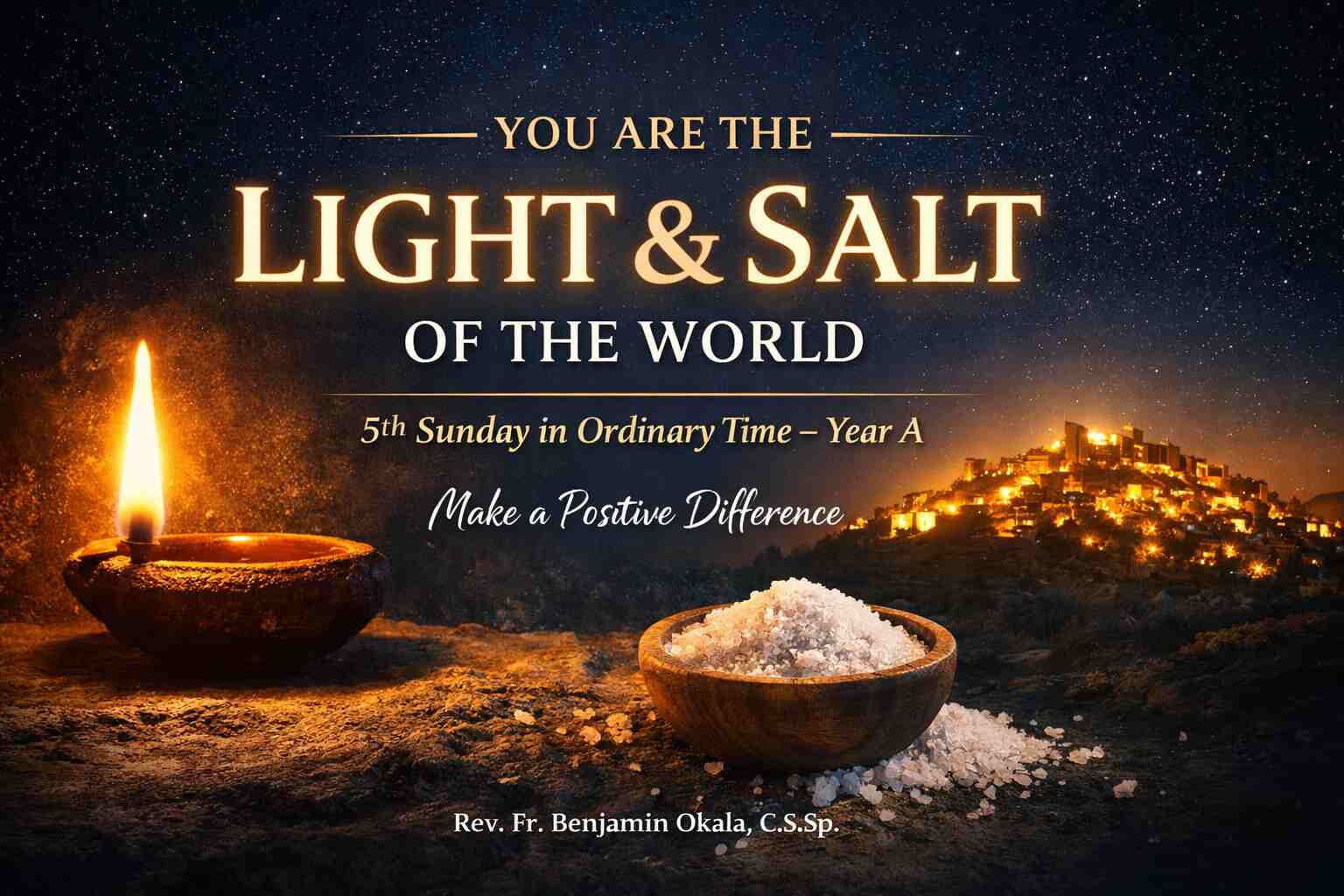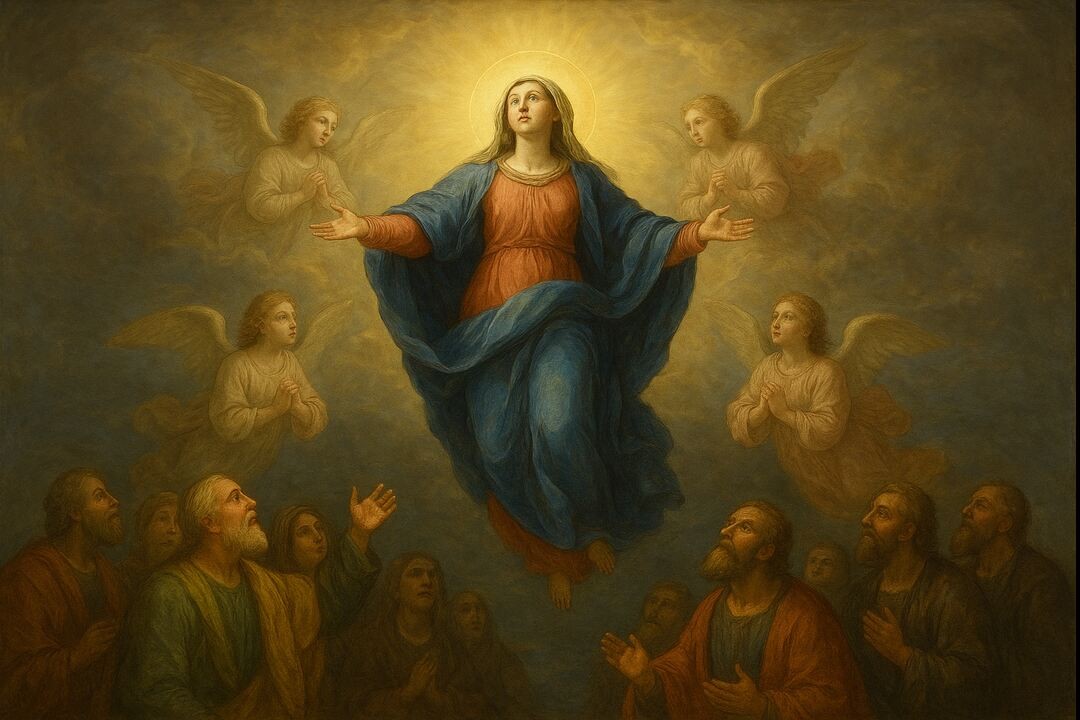SOLEMNITY OF THE HOLY EUCHARIST, YEAR A
First Reading: Deuteronomy 8:2-3, 14-16; Second Reading: 1 Corinthians 10:16–17; Gospel: John 66:51–5
Every human being is a composite being with a body and a soul. These essential aspects of humanity can only be alive and function effectively if they receive proper nourishment. The food of the body is physical (bread, manna, and water or wine). On the other hand, the food for the soul is spiritual (the Eucharist and the Blood of Christ) (John 6:35). These foods help boost our energy levels (physical and spiritual) so we can live. When we are starved, we become weak and tired, and we can even die without food. This implies that, for any aspect of our being to be alive, we must always nourish it with its proper food.
Today, the Universal Church celebrates the Solemnity of the Most Holy Body and Blood of our Lord Jesus Christ. This feast reminds us of the power of the Holy Eucharist we receive during Holy Mass, which is a great gift that Jesus Christ left us before ascending into heaven. In today’s homily, we will reflect on the power of the Holy Eucharist, the significance it holds for us as Christians, and the benefits it brings to our lives.
What is the Holy Eucharist?
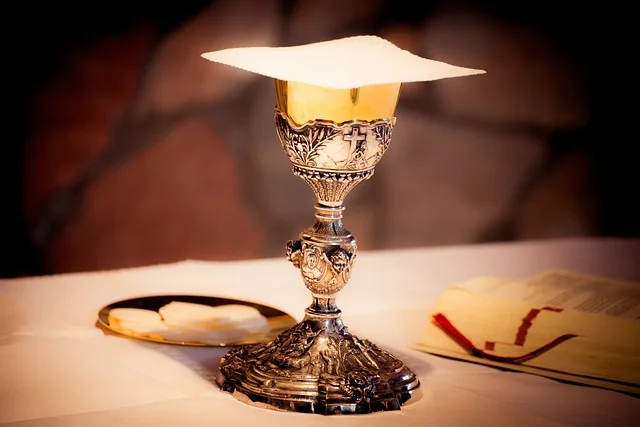
The Holy Eucharist is the very sacrifice of the body and blood of our Lord Jesus Christ. It is the sacrament in which we receive the true and substantial presence of Jesus Christ, body, blood, soul, and divinity, under the appearance of bread and wine. Furthermore, the Holy Eucharist is the source and summit of the whole Christian life. It is at the very heart of our Catholic faith. The depth of its mystery is without limit because it is the “terminus a quo and the terminus ad quem” of the Church’s activities.
Christ Established the Holy Eucharist to Perpetuate His Death
Jesus Christ instituted the Holy Eucharist as a sacramental expression of His Paschal Mystery. In other words, He established it to perpetuate His redeeming sacrifice of the Cross throughout the ages until His return in glory. During the Last Supper with His disciples, Jesus Christ transformed the bread and wine into His body and blood and gave them to His disciples to eat and drink. He said, “This is my Body, which is given for you, and this cup is the New Covenant in my Blood, which will be poured out for you” (Luke 22:19–20).
The Significance of the Holy Eucharist to Christians
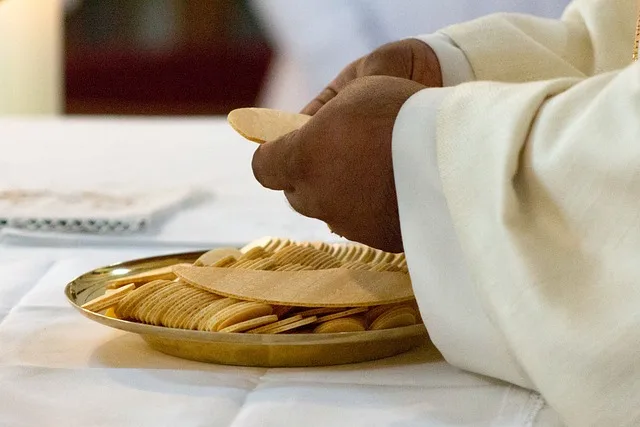
The Holy Eucharist is the center of our faith and Christian worship and the heart of the Church’s life. It is through the Eucharist that we are united as the mystical body of Christ and made one with our brothers and sisters in the faith. Through the Holy Eucharist, we are able to participate in the mystery of Christ’s sacrifice on the cross and share in His divine life. Just as Jesus Christ Himself says in today’s gospel reading, “I am the living bread that came down from heaven; whoever eats this bread will live forever; and the bread that I will give is my flesh for the life of the world” (John 6:51).
Moreover, the sacramental species of bread and wine are not merely signs or symbols of some spiritual reality. The accidents of bread and wine are not merely a sign of spiritual food. They provide the sensible medium through which Jesus Christ makes Himself really and truly present, the sacramental veil beneath which is His body, blood, soul, and divinity. If they were mere signs or symbols, there would be no difference between what the Catholic Church teaches about the sacraments and the Protestant understanding of the sacraments as mere symbols.
The Spiritual Food that Nourishes our Souls
The first reading of today speaks of manna (physical food), a gift of God that temporarily sustained the lives of the Israelites during their sojourn in the desert. Although the manna only nourished them physically, they became hungry and thirsty again.
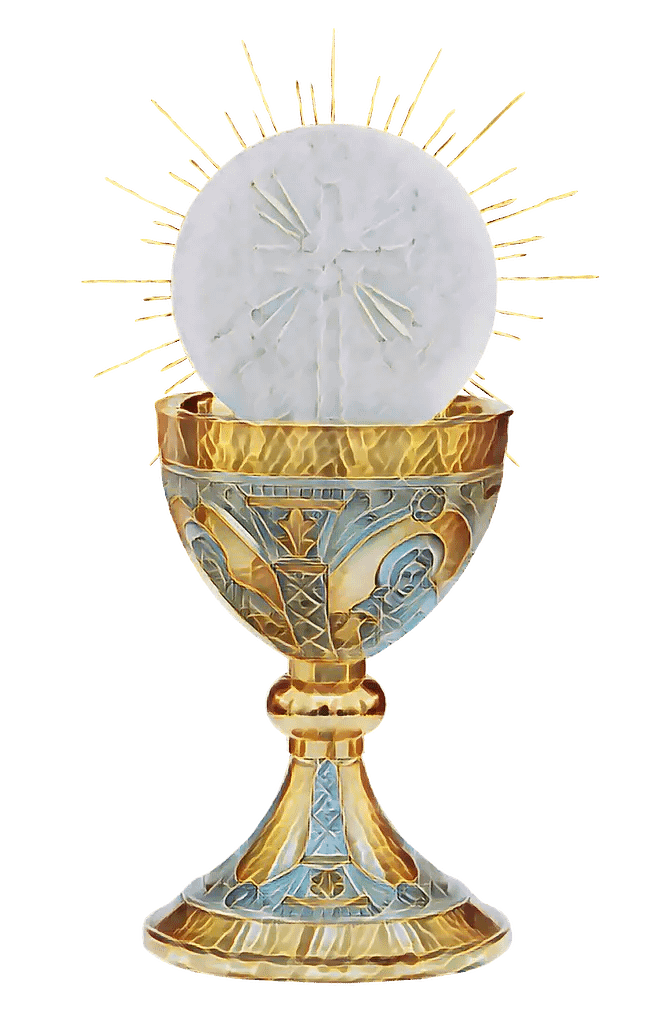
The Holy Eucharist is the medicine of immortality and powerful divine nourishment for our souls. In other words, the Holy Eucharist is the bread of life, the food that sustains us in our spiritual journey. It strengthens our faith and nourishes our souls. Besides, the difference between physical food and spiritual food is that physical food restores the strength and vitality of the body by changing or enhancing the energy level of the person who eats it. Whereas spiritual food nourishes the soul by changing the person who eats it into Jesus Christ Himself. Of course, when we receive the Holy Communion, we are receiving Jesus Christ Himself, who nourishes and strengthens us in our spiritual journey.
According to St. Thomas Aquinas, to be fed with the Holy Eucharist (Christ’s true Body and Blood) is nothing other than being united to Jesus Christ by faith and charity. Moreover, when we receive the Holy Eucharist under the appearance of bread and wine, we are transformed or changed by what we receive. Just as St. Paul says, “It is no longer I who live, but Christ lives in me” (Galatians 2:20).
The Power of the Holy Eucharist

The Holy Eucharist is a powerful sacrament and spiritual food that has the power to transform and heal us, both physically and spiritually. It helps to detoxify whatever is not of God in the tripartite aspects of our lives (body, soul, and spirit) when we receive it in faith after the Sacrament of Reconciliation. In other words, it is the food that sustains us on our journey to eternal life. Through the Holy Eucharist, we receive the grace we need to live out our Christian vocation and grow in holiness.
Moreover, what we receive with our tongue are the appearances of bread, that is, the “accidents” or “properties” of the bread. Jesus Christ Himself is invisibly present under the accidents or properties of the bread, but not in a manner that is subject to the actions of our tongue or the digestive powers of our stomach. Indeed, the Christ that is substantially present under the accidents of bread and wine is Christ’s glorified and impassible body that is in heaven. It would be neither possible nor praiseworthy to eat Christ physically; that would be an abomination. Hence, we eat Christ spiritually under the sacramental sign, the physical eating in the appearance of bread.
The Sacrament of Love
The Holy Eucharist is also a sacrament of love, a sign of Christ’s love for us and His desire to be with us always. It is a source of comfort and strength in times of trial and a reminder of our hope in the resurrection. It shows us how much God loves us and helps us live out our vocation as Christians to love and serve others. Jesus Christ became man, sacrificed Himself for us, and continues to offer Himself to us in the Holy Eucharist. His love for us is self-giving and sacrificial, and it calls us to love one another in the same way. St. Augustine opined that the Eucharist is a bread of love, and those who receive it worthily become one with Christ’s Body and Blood, and are inwardly healed and spiritually renewed.
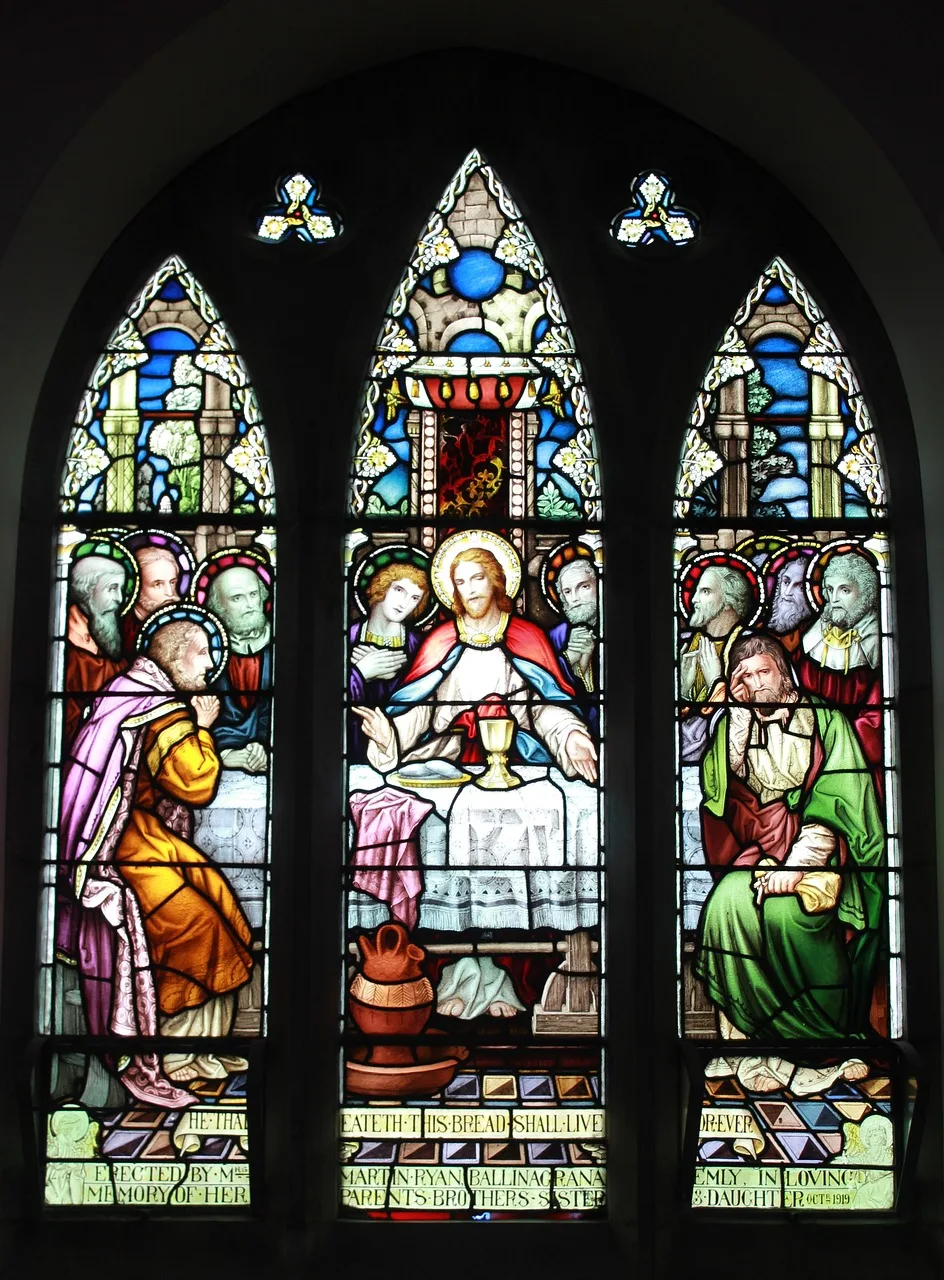
Unity among Christians
Clement of Rome said that, the Holy Eucharist fosters the unity of the Church. Hence, Justin Martyr confirmed this and said that “the Holy Eucharist holds the believing community together.” This lends credence to what St. Paul avers in the second reading: “Because there is one bread, we who are many are one body, for we all partake of the one bread” (1 Corinthians 10:17). This implies that the Holy Eucharist is not bread to be eaten alone. It is broken and shared as a means and sign of unity. By virtue of our baptism, we become children of God and members of the Church. Hence, we become partakers of the One Bread at the Eucharistic Celebration, sharing in Christ’s divine nature. We are all united in Christ through the anamnesis of His death and resurrection.
Benefits of the Holy Eucharist
The Holy Eucharist brings many benefits to our lives:
- Through the Holy Eucharist, we receive the forgiveness of sins, the strength to resist temptation, and the grace to persevere in our trials and live a holy life.
- The Holy Eucharist heals us of our spiritual and emotional wounds and restores our relationship with God and one another.
- The Holy Eucharist engenders peace and joy, gives us the strength to do good, and allows us to grow in love.
- The Holy Eucharist nourishes our souls and strengthens us for the mission of evangelization.
- The Holy Eucharist is a foretaste of the heavenly banquet and a pledge of our future glory.
Implications of Receiving the Holy Eucharist Unworthily
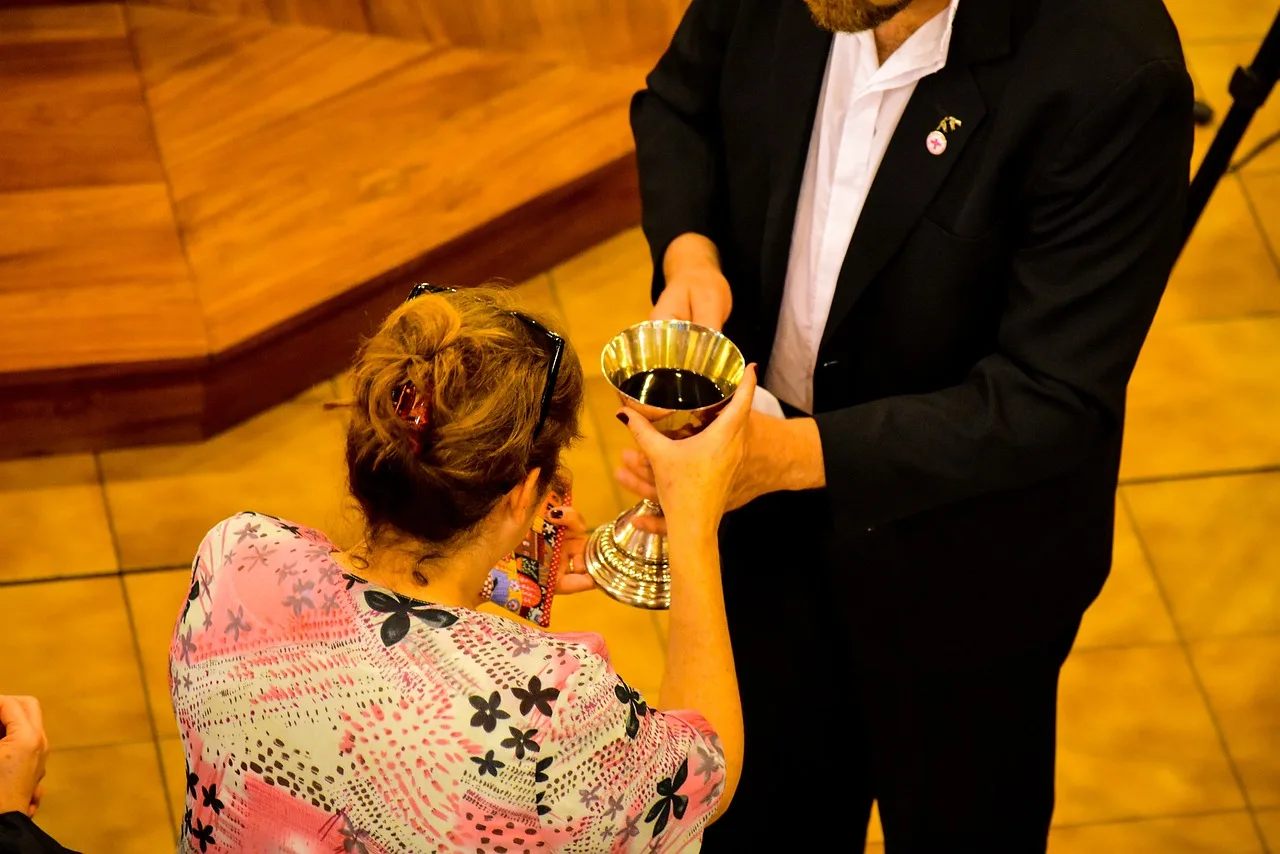
While the Holy Eucharist is a great gift, it is not to be taken lightly. St. Paul warns us, “Whoever, therefore, eats the bread or drinks the cup of the Lord in an unworthy manner will be guilty of profaning the body and blood of the Lord… Anyone who eats and drinks without discerning the body eats and drinks judgment on himself because he does not discern what the body means. It is because of this that many among you are ill and weak, and some have died” (1 Corinthians 11:27–30).
Unworthy Reception of the Holy Eucharist Incurs Spiritual Death
Certainly, anyone who receives the Holy Eucharist unworthily incurs spiritual death upon himself or herself. This includes those in whose hearts there is hatred, bitterness, and contempt against their neighbour, as they come to the altar of our Lord, eat, and drink unworthily. So then, to eat and drink unworthily is to do so with no sense of the greatness of the thing we do and to do so while we are at variance with the brother for whom also Christ died. Therefore, we must prepare ourselves very well to receive the Holy Eucharist through the Sacrament of Reconciliation and examination of conscience, and we must approach the sacrament with reverence and gratitude.
Conclusion
The Holy Eucharist is the very sacrifice of the Body and Blood of our Lord Jesus Christ. It is the source of our life and salvation, which sustains us on our journey to eternal life, nourishing both our bodies and souls. Also, it is the powerful sacrament that unites Christians with God and provides them with spiritual sustenance. It transforms individuals into the likeness of Christ, heals and uplifts them, and grants forgiveness, peace, and a glimpse of heavenly glory.
However, receiving the Holy Eucharist unworthily can have serious consequences. Therefore, approaching it with reverence, preparation, and gratitude is essential. So let us always approach the Holy Eucharist with reverence, faith, and gratitude, and allow Jesus Christ to transform us into His likeness. Therefore, as much as we struggle for the physical food to keep our body moving, may we also seek and desire more of the spiritual food, leading to eternal life.
Prayer:
May the Holy Eucharist empower you to love one another as Christ loves you and make you witness His love for the mission of evangelization in the world, and help you gain eternal life, through Jesus Christ our Lord, Amen.
Peace of Christ be with you…
Rev. Fr. Ben Okala, C.S.Sp.

